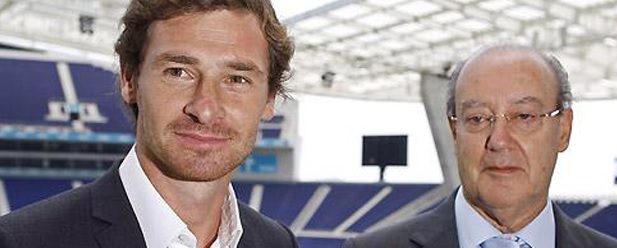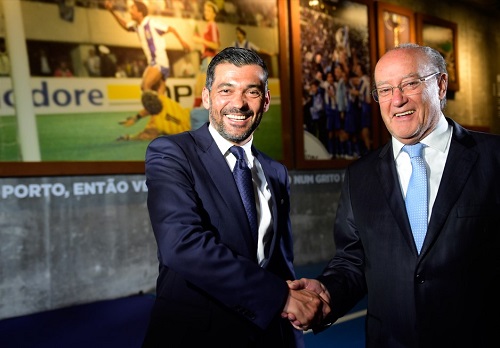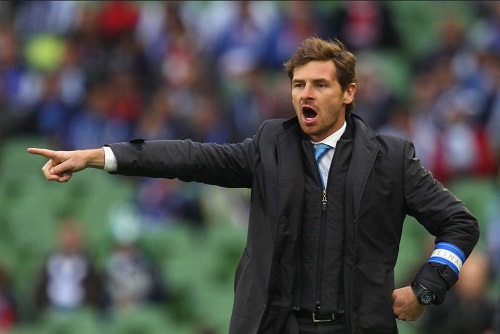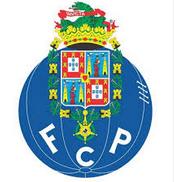 Porto fans vote on Saturday: Pinto da Costa or André Villas-Boas?
Porto fans vote on Saturday: Pinto da Costa or André Villas-Boas?
Tomorrow, Saturday 27 April 2024, is set to be a monumental day for the future of FC Porto. Indeed, the visit of league leaders Sporting to the Estádio do Dragão the day after has been relegated almost to a sideshow this weekend for Porto fans.
Porto’s long-serving president Jorge Nuno Pinto da Costa and the pretender to his throne, André Villas-Boas, were once the closest of allies. But the two have become embroiled in an increasingly fractious election campaign, with insults and accusations flying from one camp to the other.
PortuGOAL elaborates on the backdrop to Satuday’s election.
Pinto da Costa: an unparalleled legacy followed by decadence
Pinto da Costa has been Porto’s president for 42 years, overseeing enormous success but all the while sailing close to the wind. For the first time in his long reign, the now 86-year-old is facing a fierce battle to remain top dog at the northern giants. How did we arrive at this point?
Jorge Nuno Pinto da Costa is the most successful president of any football club anywhere in the world. Under his watch, Porto have accumulated an astonishing 68 trophies, including 23 times becoming champions of Portugal. It should be stressed that prior to his ascension to the top job at club, the Dragons had won the Primeira Liga only seven times in the entire 50-year history of the competition up to that point.
Yet perhaps even more impressive, as well as coming to dominate Portuguese football, Porto became a force to be reckoned with internationally, winning the European Cup in 1987, the Champions League in 2004 and a total of seven international trophies.
However, while Pinto da Costa’s achievement in overseeing a metamorphosis at the club and building an authentic European titan is unquestionable, his methods have always been the subject of ferocious controversy. He has been accused of corruption, intimidation and fostering a climate of hate, antagonism and animosity in the domestic game.
In 2007 he was formally charged of bribing match officials in the Apito Dourado (Golden Whistle) scandal and Porto were given a 6-point penalty. Although a subsequent decision by the Portuguese league declared all punishments handed down null and void, incriminating wiretapped phone calls were posted on YouTube that appeared to corroborate the initial charges.
Champion of the north
 Pinto da Costa has always maintained that the centralisation of political power in Lisbon puts Porto at a disadvantage and has carefully nurtured the “us against the powers-that-be” position throughout his tenure.
Pinto da Costa has always maintained that the centralisation of political power in Lisbon puts Porto at a disadvantage and has carefully nurtured the “us against the powers-that-be” position throughout his tenure.
The discourse goes down well with Porto’s fanbase, many believing, possibly reasonably, that Porto gets a raw deal in all walks of life compared to the Portuguese capital 300 kilometres to the south.
Therefore, in addition to accomplishing sporting excellence, Pinto da Costa has successfully turned FC Porto into a symbol of resistance and an institution that represents the whole northern region of Portugal in its struggle for recognition and an equal share of the country’s resources.
And alongside volatile coach Sérgio Conceição, the president has an ally who is an equally ferocious defender of the club and the region.
It is little wonder that he has been re-elected virtually unopposed for over four decades.
Cracks start to appear
But for the first time in his many mandates, Pinto da Costa has had to deal with increasing contestation in recent years. The main issue has been the financial mismanagement of the club, with supporters unable to fathom how the huge transfer fees regularly flowing into the club’s coffers, together with the millions earned through perennial Champions League campaigns, ties up with dire and ever-worsening levels of debt.
Porto have fallen foul of the UEFA financial fair play regulations, charged with overspending in relation to their income, resulting in transfer bans and heavy fines. Key players have been forcibly sold, much to the chagrin of coach Sérgio Conceição – Luis Díaz and Otávio two notable recent examples – without apparently improving the accounts significantly.
Another example of poor financial management has been the club’s incomprehensible recently acquired habit of allowing players to run down their contracts, thus losing them without compensation despite still being valuable assets, as happened in the case of Yacine Brahimi, Héctor Herrera and now Mehdi Taremi, for example.
And in this backdrop, the board members have been awarding themselves generous bonuses regardless of the team’s success or lack of it, not to mention huge agent commissions appearing on the balance sheet, many of which are poorly explained and/or have involved Pinto da Costa’s son, Alexandre Pinto da Costa.
It is easy to draw comparisons with the crumbling of historical empires…
André Villas-Boas, the young pretender
Ironically, the man wanting to put the death knell in a regime that has lasted almost half a century is someone who enjoyed tremendous success under Pinto da Costa at Porto, first as José Mourinho’s assistant, then as head coach.
Pinto da Costa and his supporters accuse Villas-Boas, 46 years old, of being inexperienced and unprepared to manage a football club of the size of FC Porto, but AVB has always been precocious.
He famously knocked on the door of his neighbour and Porto manager at the time, Sir Bobby Robson, handing him a dossier explaining why he should select striker Domingos Paciência instead of leaving him on the bench. Instead of politely sending the teenager on his way, Robson accepted the file and was so impressed with its contents that he invited Villas-Boas to Porto’s training sessions and gave the aspiring coach a helping hand to climb up the football ladder.
 Two triumphant spells
Two triumphant spells
The rest is history, with Villas-Boas becoming José Mourinho’s assistant as they built Porto’s greatest ever team, winning the UEFA Cup and Champions League in successive seasons and cleaning up all the domestic trophies on offer bar one Portuguese Cup in two golden years.
Fast-forward half a dozen years and after more major silverware at Chelsea and Inter Milan, Villas-Boas was back at the Dragão as head coach. Again it was a roaring success as the young manager led Porto to the title without a single defeat, a feat that had not been achieved since 1972/73, on the way to a memorable treble as Porto also lifted the Europa League and the Portuguese Cup.
But Villas-Boas’ ambitious nature saw him walk out on what he had described as his “dream job” after just one season, the chance to take the helm at Chelsea proving too tempting to turn down. The nature of his departure left a sour taste in the mouth for many of the Porto faithful, with Pinto da Costa having promised him the team would not be weakened in an attempt to win another Champions League trophy.
AVB went on to coach Chelsea, Tottenham, Zenit Saint Petersburg, Shanghai and Marseille, and although he cannot be considered a failure at any of his clubs, only in Russia did he win silverware again.
Villas-Boas is a free spirit who has never been afraid to take his life in different directions and speak his mind. He is an avid fan of rallying and took part in the Dakar Rally in 2018. Born into a well-to-do family, he has stated that if he wins the presidential election he will serve the club without receiving any salary.
U-turn on presidency promise
Porto-born Villas-Boas has stated several times it was his goal to become president of FC Porto. He initially said he would only run for president when Pinto da Costa was no longer the supremo at the club, before changing his mind. His critics point to that about-turn and the manner of his exit from Porto in 2011 to accuse him of a lack of loyalty.
Undeterred, Villas-Boas has put together a detailed project, putting a lot of emphasis on the financial restructuring of the club, building a new academy and the creation of FC Porto teams for futsal and women’s football, two of the most popular sports in the country in which rivals Benfica, Sporting and Braga have invested heavily, but in which Porto do not participate.
Testy atmosphere
Curiously, Pinto da Costa remodelled his election programme in the wake of AVB’s ideas for the future of the club to include practically the same promises. Moreover, the current president has made a series of important announcements in recent days (sale of naming rights of the stadium, contract renewals for coach Sérgio Conceição and his son Francisco Conceição, purchase of land to build an academy in Maia) which have been viewed as either proof that the club is moving in the right direction, or desperate attempts to earn votes, depending on which side of the barricade you are on.
Accusations have been thrown backwards and forwards. A typically belligerent Pinto da Costa, as is his wont, has not held back in hurling insults at his opponent, with Villas-Boas hitting back, albeit having to tread a careful line when it comes to criticising his opponent given what Pinto da Costa represents for the club.
On Saturday, the FC Porto sócios (paying members) will vote in what is expected to be the presidential election with the highest ever turnout, and with a completely unknown outcome.
Result in the balance
Media outlets and analysts are not putting their neck on the chopping block and declaring either of the main candidates a favourite (a third candidate, Nuno Lobo, is set to gain only a negligible percentage of the vote). It is simply too close to call.
 Quote / unquote
Quote / unquote
André Villas-Boas: “We are grateful and we will always be grateful to Pinto da Costa. He will always be the president of presidents of FC Porto. But it’s time for change.”
Pinto da Costa: “The basis for the success in my 42 years, when we have won 68 trophies and seven international ones, was the togetherness of the members, but since the emergence of that candidature [André Villas-Boas], he only wants to divide the members.”
André Villas-Boas: “The president [Pinto da Costa] continues to hide the facts from the members because he knows about the financial default, but he does not want to say it. And this will be another factor of pressure for this board, if we are elected.”
Pinto da Costa: “The financial situation today is better than in 2020, when Villas-Boas backed my presidential candidature.”
André Villas-Boas: “Am I on a collision course with Pinto da Costa? No, I have a very strong candidature and a very strong candidature of course is uncomfortable for the installed powers and people whose interests are not in favour of FC Porto.”
Pinto da Costa: “My passion for FC Porto it not for today, or for a 4-year mandate, it’s an entire lifetime.”
André Villas-Boas: “Gratitude doesn’t pay debts.”
Pinto da Costa: “From the moment André Villas-Boas’ candidature was announced, the refereeing changed [undermining Porto]. Was it a coincidence?”
André Villas-Boas: “Pinto da Costa isn’t in condition to preside FC Porto for another four years. FC Porto has become a goose that lays golden eggs. Some people are taking advantage of the frailty of the president and his current incapacity.”
Pinto da Costa: “Mentally I may be a little muddled at times, but worse than being muddled is being an imbecile.”
André Villas-Boas: “Pinto da Costa’s management has been bad, with lots of mistakes and being held hostage by outside interests.”
Pinto da Costa: “If he [Villas-Boas] had any shame he would keep quiet.”
André Villas-Boas: “Pinto da Costa has made a number of structural decisions in the 15 days preceding the elections which are disgraceful and the members don’t deserve this. I’m disappointed and astonished that he continues to do so to sustain his election effort. It’s an act of desperation. Enough!”
Pinto da Costa [upon presenting the start of building of the new academy to journalists]: “After he [Villas-Boas] said that this training centre was a utopia and a pack of lies, and after what you are seeing here, if he had any character he would offer a public apology for not believing that it was possible.”
André Villas-Boas: “Vote for an FC Porto that is transparent and free from leeches.”
Pinto da Costa: “Villas-Boas is being supported by enemies of the club and by the Lisbon media.”
By Tom Kundert

